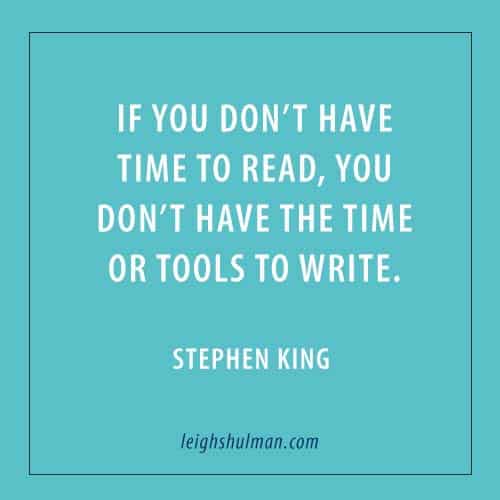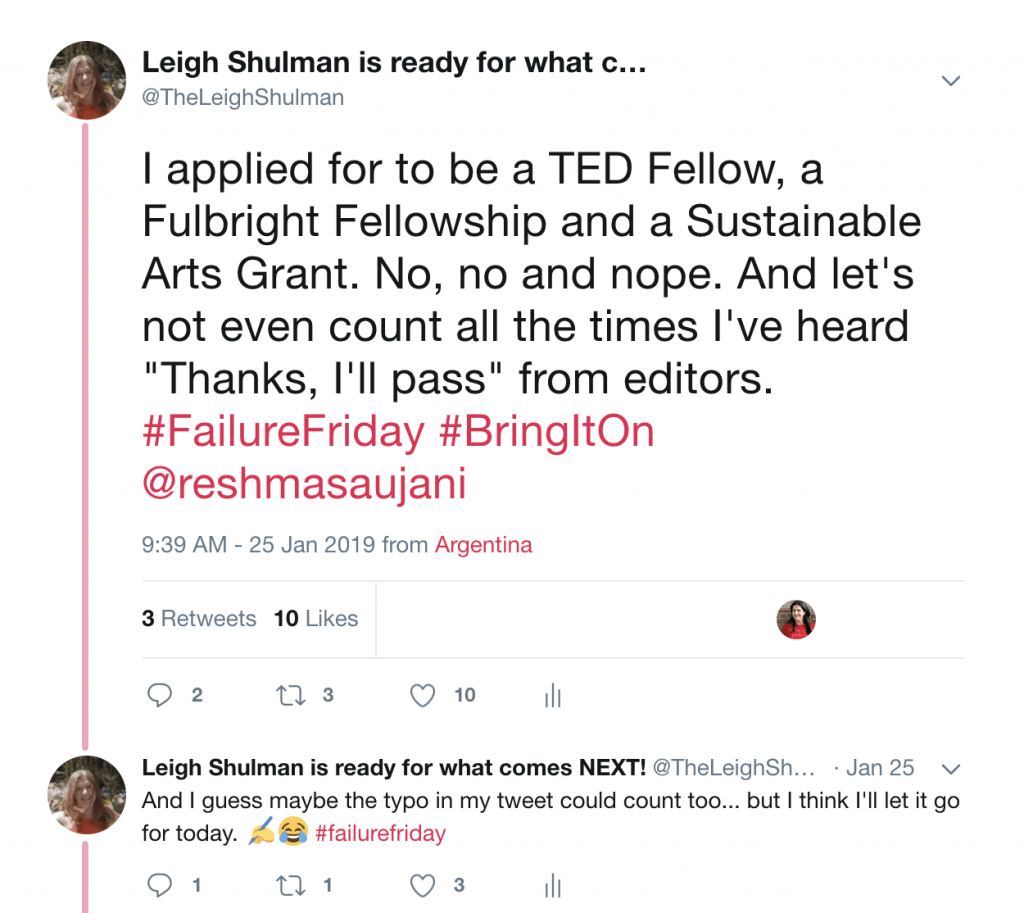
If you want to hone your writing craft, then you must read. Read everything. Fiction, non-fiction and everything in between. Nonfiction books, in particular, can help you your writing from a different perspective.
But nonfiction reading doesn’t just help us think about our own writing differently — some books change your world view and challenge the way you see yourself and your place in the world. That’s what we hope this list of nine nonfiction books will do for you. From a history of everything to how to make money to inspiring stories of how failure led to success, this list includes nine of our favorite nonfiction titles from some of the best authors out there.
1. A Short History of Nearly Everything by Bill Bryson
I don’t say this often, but this book completely blew me away. I never thought it would be possible for one book to give a concise, clear and yet incredible expansive history of science, culture and, well, literally everything.
I didn’t think a nonfiction book of this type could live up to its title, but it did. If there’s something you want to know about all areas of science and the scientists who scienced them, this is the book to begin. It breaks it down, makes it manageable sections and offers enough insight to get you started.
He lays the groundwork, but you have to pick up the threads from there. It’s an incredible jumping off point to expand your knowledge and learn more about the world.
Grab a copy of A Short History of Nearly Everything here.
2. Think and Grow Rich by Napoleon Hill
I won’t lie. This book was clearly written with only men in mind. This book is on this list because it’s a short read with a solid message. It tells us we can do whatever we want as long as we set our kinds and have a plan. Envision what we want. Believe in it, and it will happen.
I include it also because this book is one of the inspirations for The Writer’s Roadmap. The basic philosophy has been layered throughout. Create a plan, envision it clearly and then you make it happen.
I turned Hill’s book on its head, though, because my book was written specifically with women in mind. It’s most definitely for men also, but while Hill studied successful men to find the commonalities in their success. I looked at a much more diverse group of people.
Whatever challenges hold us back, we can overcome them. It’s just hard to hear that message when you’re not included in the audience.
“What the mind can conceive, the body can achieve,” says Napoleon Hill. It’s all about your mindset, even in the face of failure and hardship. Which leads me directly to my next two books.
Grab a copy of Think and Grow Rich here.
3. The Master Plan by Chris Wilson
Imagine you’re living in a place where bullets fly through the windows at night. You’re not sleeping well, not eating properly and you can’t concentrate at school. All before your tenth birthday. By sixteen years old, you’re in prison on a life sentence for murder.
This is the setting where Wilson’s book and business began. He read everything he could read, built his knowledge and ideas, and from that sprang a social enterprise that now helps communities and supports people so the support they need before ending up in prison.
Grab a copy of The Master Plan here.
4. Brave, Not Perfect by Reshma Saujani
Reshma Saujani knows about failure. She knows she’s not perfect. She knew this when she ran for the US House of Representatives. Everyone told her she’d lose. She ran anyway, and when she did lose, yes, it was difficult. Yes, she had to face a self-reckoning, but instead of letting failure stop her, she turned it into a valuable lesson she now uses in her tech organization, Girls Who Code.
You can hear more of her philosophy in her 2016 TED talk titled, “Teach Girls Bravery Not Perfection.” You can read about it in her book Brave Not Perfect. And you can join her every Friday on Twitter to share your own failures and rejections with the #FailureFriday hashtag.
Here’s one of my failures:

Grab a copy of Brave, Not Perfect here.
5. The Art of Public Speaking by Dale Carnegie
I’m not the biggest fan of going online to make videos, live or pre-recorded. I much prefer teaching classes live, particularly to smallish groups. I wanted to up my game, and this is the book Seth Godin recommended in a course I took with him.
It includes simple and straightforward instruction, such as: change of tempo lends naturalness to the delivery. Each piece of advice follows with questions and methods to apply to your own speaking.
Nancy Duarte analyzed Martin Luther King Jr.’s “I Have A Dream” speech using similar guidelines, breaking down exactly why it is such an effective and enduring speech.
You can find a free PDF for The Art of Public Speaking online and for free here.
6. You are a Badass by Jen Sincero
This book is a super easy read filled with wisdom on how to stop sabotaging yourself and live an amazing life. Sincero writes about the subconscious beliefs that we let drive our decisions and how to recognize it and take control of your life. I also appreciate that Sincero weaves real-life experiences and practical strategies throughout this book so you can actually make changes, instead of just reading about how someone else changed their life. She touches on money in this one, but wrote a whole other book about money called You are a Badass at Making Money.
Grab a copy of You are a Badass here.
7. The Big Leap by Gay Hendricks
This book is all about removing the “last obstacle to ultimate success in wealth, work, and love”, which Hendricks defines as the Upper Limit Problem. He writes about how we function in the world in four main zones — the Zone of Incompetence (things you’re not good at), the Zone of Competence (things you and many people can do well), the Zone of Excellence (things you do very well), and the Zone of Genius (things that you are uniquely suited to do). The focus of the book is how to break through to our Zone of Genius, which in Hendricks’ opinion is the key to happiness and success, and what is stopping us from getting there.
He argues that every person he has worked with deals with one or more four hidden barriers based on fear or false belief and the trick is to identify it (or them), bring awareness to how it affects your life and then you won’t be bogged down by it anymore.
Grab a copy of The Big Leap here.
8. Sapiens: A Brief History of Humankind by Yuval Noah Harari
This book is not brief. It’s over 400 pages and at times a dense read, but I suppose in the context of thousands of years of human history, 400 pages isn’t really all that much. Harari starts at the beginning of human history, looking at how our ancestors evolved and migrated, how we developed cognitive abilities and communities, all the way up to how family units have changed and how we define happiness in today’s society.
Grab a copy of Sapiens: A Brief History of Humankind here.
9. Buddha’s Brain: The Practical Neuroscience of Happiness, Love, and Wisdom by Rick Hanson and Richard Medius
I love when science “proves” what ancient traditions have known for centuries. Many societies have long believed that if we want to change our behavior or even our world, we have to change our thoughts. This book blends old belief systems with modern science, using breakthroughs in neuroscience to explain that yes, thoughts change our brains.
But it’s not all about research — the book includes strategies and meditations for using this information to bring more happiness and love into your life. Even though the book was written by a neuropsychologist and neurologist, they make complex concepts very easy to understand and internalize.
Grab a copy of Buddha’s Brain: The Practical Neuroscience of Happiness, Love, and Wisdom here.

